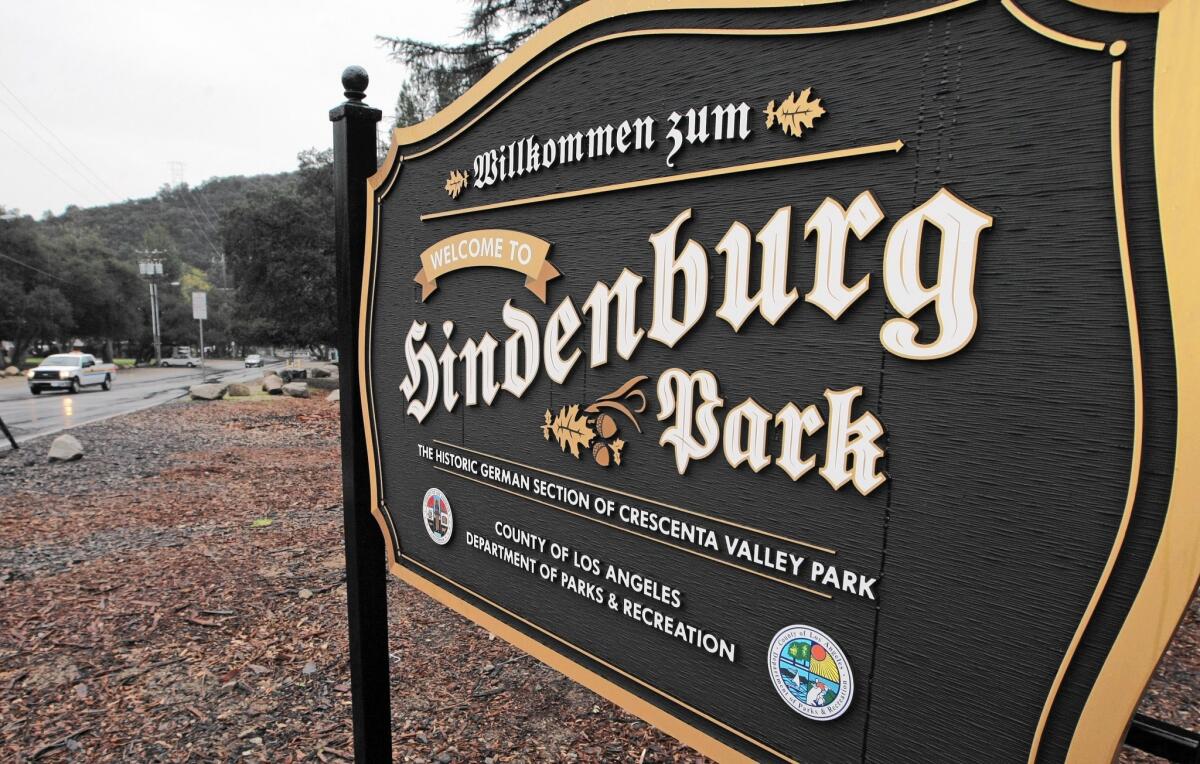Sign offers a historic âwillkommenâ to La Crescentaâs Hindenburg Park

Los Angeles County recently put up a sign for Hindenberg Park, which has been at the west end of Crescenta Valley Park since it was purchased by the county in 1958.
A new welcome sign at Crescenta Valley Park is a nod to an era when the open space was used for gatherings by local Germans.
It tells visitors theyâve come to Hindenburg Park, a section of Crescenta Valley Park renamed by Los Angeles County officials in 1992.
NEWSLETTER: Stay up to date with whatâs going on in and around your neighborhood >>
It was named for Paul Von Hindenburg, a German war hero during World War I and president of Germany from the late â20s to early â30s, according to the website for the Historical Society of the Crescenta Valley.
The grounds were acquired by the German American League in 1925 and, through the years, a stage and a dance floor were added. It was originally called the La Crescenta Valley Picnic Grounds.
The welcome sign delivers its message in English and German with the phrase âwillkommen zum.â
It was fully paid for by the German heritage organization called the Tricentennial Foundation.
âFor many years, Germans gathered on the weekends there and they had their dances and German food and wine,â said Hans Eberhard, the foundationâs chairman.
The land was the site of one of the first Oktoberfest celebrations in Southern California, he said.
The park was sold to the county in 1958 and made part of the already-established Crescenta Valley Park.
However, the Hindenburg Park area was the site of some controversy.
It was once home to a 5-foot bust of Paul von Hindenburg, president of the Weimar Republic during Adolf Hitlerâs rise to power. It was removed once the park was sold.
The site was also used for Nazi rallies in the 1930s and 1940s.
The Los Angeles County Department of Parks and Recreation granted approval to the Tricentennial Foundation to install the sign.
A required step the group had to take was to get support from groups such as the Crescenta Valley Town Council and the Crescenta Valley Chamber of Commerce.
Steve Pierce, who is on the chamberâs board of directors, said no one opposed the sign and that the sign is not a reflection of the dark history that happened there.
âThe sign is just recognizing the German culture that was in our community,â he said. âI think thatâs important. Iâm very in support of that.â
--
Arin Mikailian, [email protected]
Twitter: @ArinMikailian
